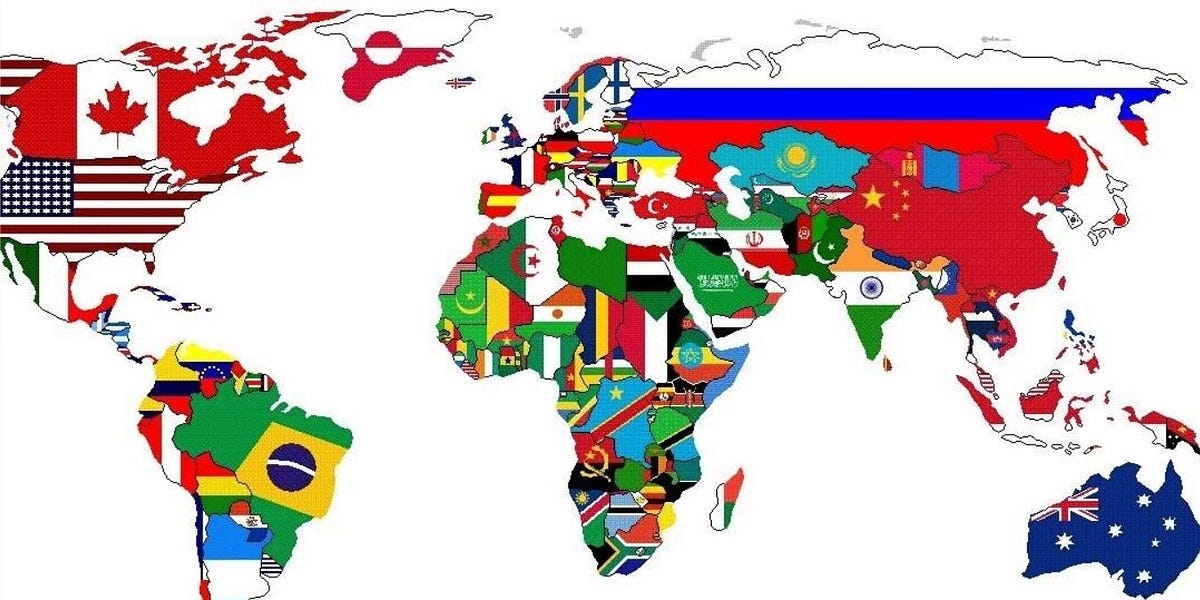From debt reduction to market expansion

Global investors have increased their equity exposure in the real estate sector due to increased confidence in India due to certain government initiatives, reform-led transparency, and accountability in the real estate sector.
Despite facing headwinds in the global economy, India has remained resilient. This is evident from the $5.8 billion inflows from institutional investors in the real estate sector. Investments in 2023 included 53 transactions, a 14% increase over 2022.


Foreign institutional investors made the largest contribution, accounting for 63% of total investments in 2023. Additionally, the market share of domestic investors has also increased noticeably from an average of 19% to 37% over the past five years.
So today we will take a look at Macrotech Developers Limited, one of the largest real estate developers. The stock (NSE: LODHA) has returned 122% over the past year. Now, let’s take a look at the company’s business and whether there are future investment opportunities.
Company Overview
Since 1986, Lodha Group has been a part of the real estate industry. Additionally, the business is led by Abhishek M. Lodha, Managing Director and CEO. After starting operations in Mumbai and developing affordable housing in the city’s outskirts, Lodha expanded to Pune and other markets and regions in the MMR.
The company’s core business includes residential real estate development with a focus on creating premium and luxury developments across a variety of price points. The company entered into digital infrastructure park development in 2019 and also entered into a joint venture with Bain Capital, Ivanhoe Cambridge and funds managed by global investment firms to develop a pan-India green digital infrastructure platform.
Macrotech Developer – Business Division
residential portfolio
- Affordable and middle income housing project. The brands include “Lodha”, “CASA by Lodha” and “Crown – Lodha Quality Homes” for affordable and middle income housing projects.
- Premium and luxury housing projects. The brands include “Lodha” and “Lodha Luxury” for premium and luxury residential projects.
Logistics and industrial complex portfolio
- The logistics and industrial parks portfolio includes the development of logistics and industrial parks on over 800 acres of land near Palava. Palava is strategically located near the Jawaharlal Nehru Port, the proposed international airport at Navi Mumbai and the industrial hub of Taloja.
- Product offerings in this category include custom structures, standard structures and land parcels for logistics and industrial customers.
commercial portfolio
- office project. Brands include ‘I think’, ‘Lodha Excelus’ and ‘Lodha Supremus’ for office spaces.
- Retail Project. The retail project focuses on high-end retail stores with shopping and entertainment options for the community.
LODHA’s competitiveness
Firstly, the company has a large presence in the Mumbai Metropolitan Region (MMR). MMR is considered the most desirable real estate market among India’s top seven markets, with the highest share of supply and absorption, highest average base selling price, and appeal to a wide range of income and demographic groups.
MMR has significant demand for real estate developments across a range of price points. Another thing to note is that barriers to entry in this region are high due to limited land availability, high land prices, and knowledge of the regulatory and approval processes required to develop a project.
As a result of LODHA’s strong brand, existing land holdings, industry knowledge and MMR’s regulatory environment know-how, the company holds a leading position in the South Central Mumbai, Thane and Extended Eastern Suburbs micro markets. MMR.
The second is the brand’s reputation. This gives you the advantage of being able to sell throughout the construction phase of your project. The company typically aims to sell at least 80% of a project’s salable area during the construction phase.
By leveraging brand equity and focusing on selling a significant percentage of units within one year of project commencement and prior to receiving a Certificate of Occupation (“OC”), the company can generate operating cash flow during the construction phase. . These sales reduce the need for construction finance and help achieve optimal returns on projects.
The third is the ability to charge premium prices for its products. By leveraging brand awareness, customer trust, a track record of successful projects, and superior construction quality, companies can increase sales volume along with premium pricing.
Macrotech Developer – Future Plans
Benefit from industry tailwinds
First, let’s understand where the company stands in its industry. In 2021, the total primary (new) sales volume in the top seven cities was approximately 300,000 units. In 2022, it grew by about 20% to 360,000 people. A 15% CAGR in housing production over this decade would result in annual housing production of approximately 1 million units per year. So total production for this decade will be 9 million units.
Additionally, the total number of households in India is estimated to increase from 77 million in 2021 to 175 million in 2030. This means an increase in demand of 100 million households. Therefore, the company has a huge runway in the industry considering its leadership position. Moreover, as India evolves from a low-income to a middle-income economy, the country will witness a ‘once-in-a-lifetime opportunity’ to increase its rates of quality home ownership.
Improved market share other than MMR
MDL has partnered with companies in Bengaluru and Pune to pursue growth outside of MMR. MMR market share was around 9% in FY22. Combined with Bengaluru and Pune, it is expected to account for 15% market share in all three markets.
With MDL’s entry into the Bengaluru market, there is a good opportunity to increase its market share in both Bengaluru and Pune. Within five years, the company hopes to capture 10% of the Bengaluru market. Additional stock is expected in about two weeks.
Macrotech Developers – Finance
The company has significantly reduced its debt since its 2021 IPO and has continued its efforts to build a strong balance sheet.
| FY23 | FY22 | FY21 | |
| Net Debt/Equity | 0.56 | 0.76 | 3.14 |
| Net Debt (Rupees Billion) | 70.7 | 93.0 | 160.8 |
From FY21 to FY23, the company reduced its net debt by approximately 56%. During the same period, net debt decreased by 82%. In addition, the company set a debt limit goal of lowering operating cash flow (OCF) by 1 times and equity capital by 0.5 times.
Company executives expect that in the next few years, Palava City, an integrated smart township spread over about 5,000 acres close to Mumbai, will grow and generate annual revenue of ₹8,000 crore.
So, do you think Lodha will drive the growth of the real estate market in the future? Let us know in the comments below.
A work written by Nalin Surya S.
With stock screeners, stock heatmaps, portfolio backtests and stock comparison tools on the Trade Brains portal, investors have access to comprehensive tools to identify the best stocks, stay updated with stock market news and make informed investments. . .


Start your stock market journey now!
Want to learn stock market trading and investing? Check out exclusive stock market courses from FinGrad, a learning initiative from Trade Brains. You can sign up for free courses and webinars from FinGrad and start your trading career today. Sign up now!!



